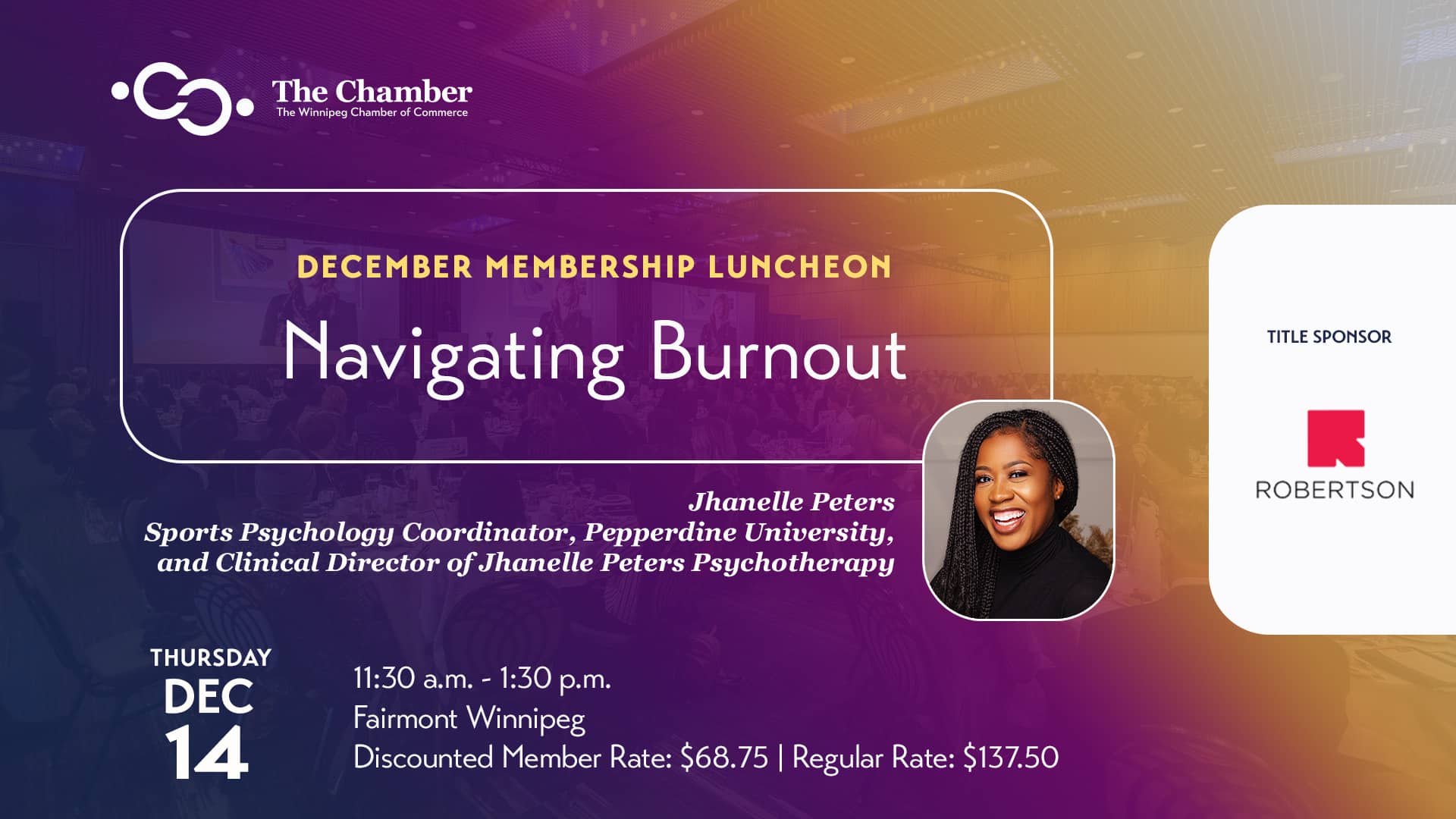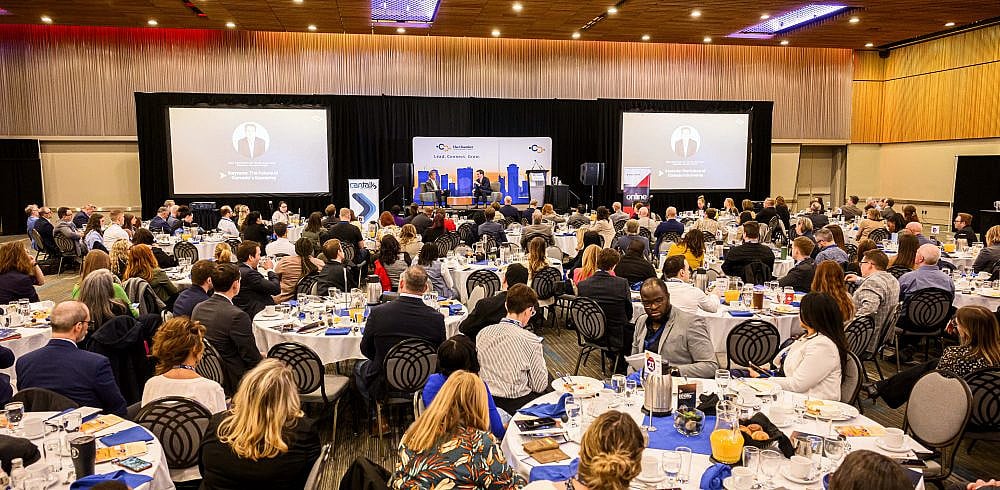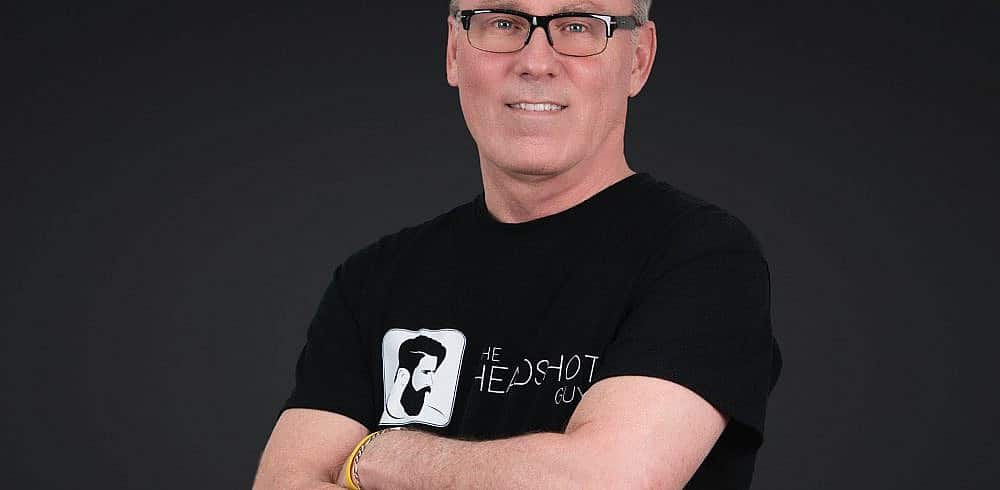4-minute read
Written by Jess Borys, Communications Manager
A recent survey by Express Employment reveals that over three-quarters of Canadian employees have experienced burnout at some point in their careers, with more than one in three currently feeling burnt out at work.
 Jhanelle Peters, the Sports Psychology Coordinator at Pepperdine University and Clinical Director of Jhanelle Peters Psychotherapy, encounters burnout regularly in her work with clients. When asked to define burnout, her response is clear.
Jhanelle Peters, the Sports Psychology Coordinator at Pepperdine University and Clinical Director of Jhanelle Peters Psychotherapy, encounters burnout regularly in her work with clients. When asked to define burnout, her response is clear.
“Burnout happens when we avoid being human for too long,” explains Jhanelle.
Drawing from her extensive experience working with high-performing individuals, including professional athletes, those in the film and entertainment industry, and C-suite executives, Jhanelle recognizes a common thread. Having served as the Mental Health Clinician for the Toronto Raptors, she reflects on the parallels between professional athletes and corporate executives.
 “Much of my career focus was on high-performing individuals and athletes. I began to realize many of the struggles athletes were dealing with, many individuals in the corporate setting are dealing with the same things,” said Jhanelle. “You work as a team, you have a goal, you want to win something, whatever that looks like. Many things translate.”
“Much of my career focus was on high-performing individuals and athletes. I began to realize many of the struggles athletes were dealing with, many individuals in the corporate setting are dealing with the same things,” said Jhanelle. “You work as a team, you have a goal, you want to win something, whatever that looks like. Many things translate.”
Burnout can happen to any of us, and we might not necessarily see it coming. It impacts our productivity and affects our mental and physical health. Jhanelle works with her clients to find ways to avoid burnout and what to do if they find themselves in a burnt-out state.
“Some of the signs we see in individuals experiencing burnout in the workplace are extreme tiredness– not that you didn’t get your eight hours and are fatigued, but where individuals have had sufficient rest but still feel overwhelmingly tired– a sense of disengagement with their work or just doing the bare minimum and a change in their interpersonal communications,” said Jhanelle. “These are just a few important signs for employers to look out for.”
But differentiating between burnout and a simple lack of interest in your job can pose a challenge. Jhanelle takes her clients through a series of steps to distinguish between the two.
 “After going through this process with your therapist, if you’re still feeling this way, maybe it means the environment you are in no longer serves what you need to feel like a human being. Then you must ask yourself, do I need to change my environment? You need to make sure the place you’re in allows you to feel like the human being you are.”
“After going through this process with your therapist, if you’re still feeling this way, maybe it means the environment you are in no longer serves what you need to feel like a human being. Then you must ask yourself, do I need to change my environment? You need to make sure the place you’re in allows you to feel like the human being you are.”
During our luncheon on December 14, Jhanelle will share the connection between stress, burnout and low moods. You will indeed walk away today with a better understanding of recognizing, preventing, and managing workplace burnout within yourselves and others.





